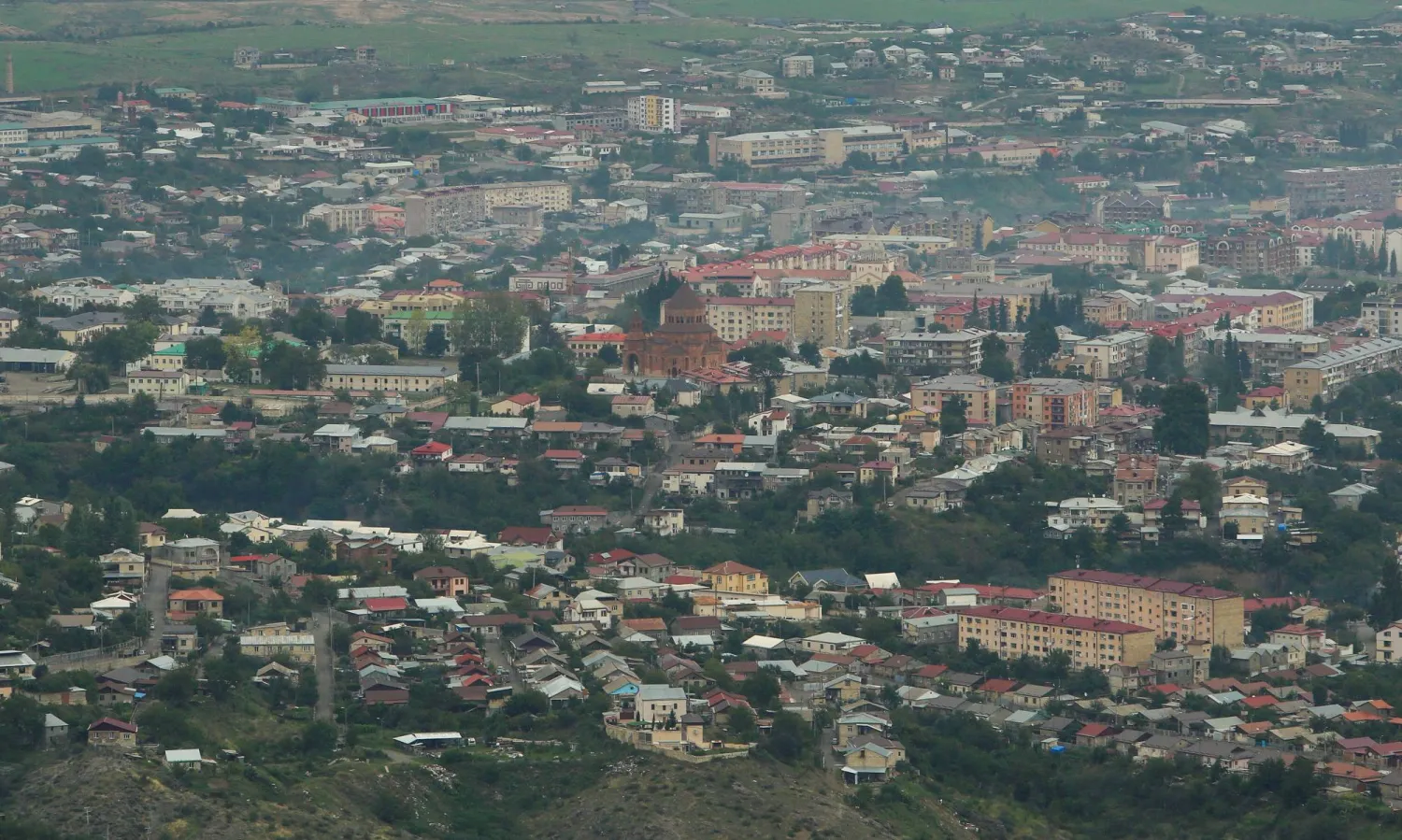As thousands of Armenians fled their homes in Nagorno-Karabakh saying they feared ethnic cleansing, the United States called on Azerbaijan to protect the rights of civilians and allow in humanitarian and monitoring missions.
The Armenians of Karabakh - a breakaway part of Azerbaijan beyond Baku's control since the dissolution of the Soviet Union - began fleeing this week after their forces were defeated in a lightning military operation by Azerbaijan's military, Reuters said.
At least 13,550 of the 120,000 ethnic Armenians who call Nagorno-Karabakh home arrived in Armenia on the first day of the exodus, with hundreds of cars and buses crammed with belongings snaking down the mountain road out of Azerbaijan.
"We are calling on Azerbaijan to maintain the ceasefire and take concrete steps to protect the rights of civilians in Nagorno-Karabakh," US Agency for International Development (USAID) chief Samantha Power told reporters in Yerevan.
Power, who earlier handed Armenian Prime Minister Nikol Pashinyan a letter of support from US President Joe Biden, said Azerbaijan's use of force was unacceptable and that Washington was looking at an appropriate response.
She called on Azerbaijan's President Ilham Aliyev to live up to his promise to protect ethnic Armenian rights, fully reopen the Lachin corridor that connects the region to Armenia and let in aid deliveries and an international monitoring mission.
Aliyev has pledged to guarantee the safety of Karabakh's Armenians but said his iron fist had consigned the idea of the region's independence to history.
FEAR AND FIRE
Ethnic Armenians who managed to get to Armenia gave harrowing accounts
of fleeing death, war and hunger.
Some said they saw many dead civilians - one said truckloads. Others, some with young children, broke down in tears as they described a tragic odyssey of running from war, sleeping on the ground and with hunger churning in their bellies.
"We took what we could and left. We don’t know where we’re going. We have nowhere to go," Petya Grigoryan, a 69-year-old driver, told Reuters in the border town of Goris on Sunday.
Reuters was unable to independently verify accounts of the military operation inside Karabakh. Azerbaijan has said it targeted only Karabakh fighters.
"We are going to learn a lot more in a hurry about the severity of those conditions and what those individuals have gone through causing them to leave Nagorno-Karabakh," USAID's Power said.
As Armenians rushed to leave the Karabakh capital, known as Stepanakert by Armenia and Khankendi by Azerbaijan, fuel stations were overwhelmed by panic buying.
The authorities there said at least 20 people were killed and 290 injured when a fuel storage facility blew up on Monday.
"The doctors and medical staff in Stepanakert are doing their best to save the lives of the wounded in these difficult and cramped conditions," the local Armenian authorities said.
BALANCE OF POWER
The Azerbaijani victory changes the balance of power in the South Caucasus region, a patchwork of ethnicities crisscrossed with oil and gas pipelines where Russia, the United States, Türkiye and Iran are jostling for influence.
Since the breakup of the Soviet Union, Armenia had relied on a security partnership with Russia, while Azerbaijan grew close to Türkiye, with which it shares linguistic and cultural ties.
Armenia has sought closer ties with the West and blames Russia, which had peacekeepers in Karabakh but is now preoccupied with the war in Ukraine, for failing to protect Karabakh. Moscow denies blame and has told Pashinyan that he is making a big mistake by flirting with the United States.
Aliyev hinted on Monday at the prospect of creating a land corridor to Türkiye across Armenia.
Anatoly Antonov, the Russian ambassador to the United States, told Washington to stop stoking anti-Russian sentiment in Armenia.
US Calls on Azerbaijan to Safeguard Armenians as Thousands Flee Karabakh

A general view shows Stepanakert, a city mostly inhabited by ethnic Armenians, as seen from the Azerbaijani-controlled town of Shusha in Nagorno-Karabakh region, September 23, 2023. REUTERS/Stringer

US Calls on Azerbaijan to Safeguard Armenians as Thousands Flee Karabakh

A general view shows Stepanakert, a city mostly inhabited by ethnic Armenians, as seen from the Azerbaijani-controlled town of Shusha in Nagorno-Karabakh region, September 23, 2023. REUTERS/Stringer
لم تشترك بعد
انشئ حساباً خاصاً بك لتحصل على أخبار مخصصة لك ولتتمتع بخاصية حفظ المقالات وتتلقى نشراتنا البريدية المتنوعة







